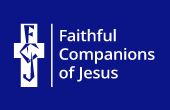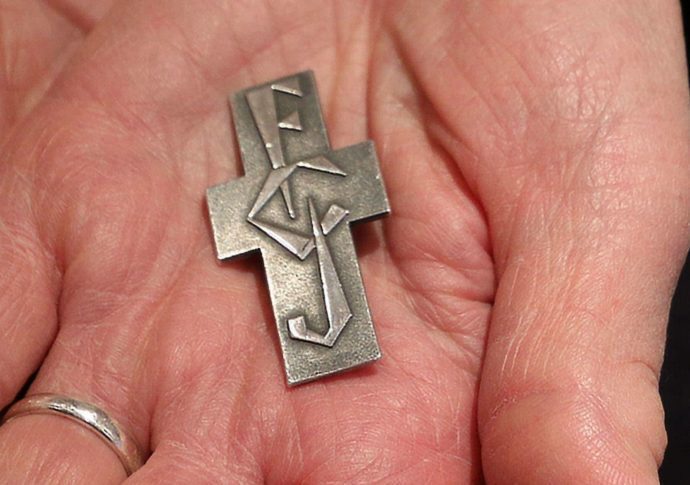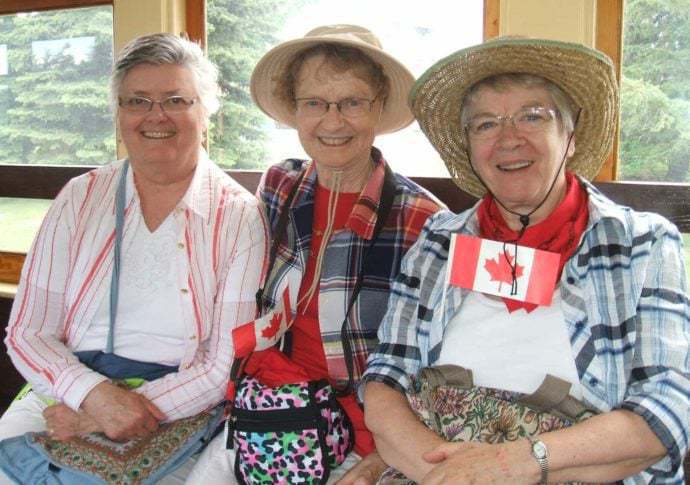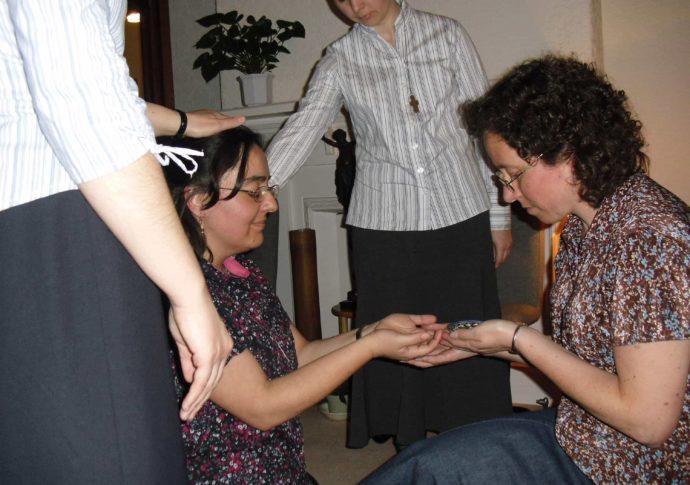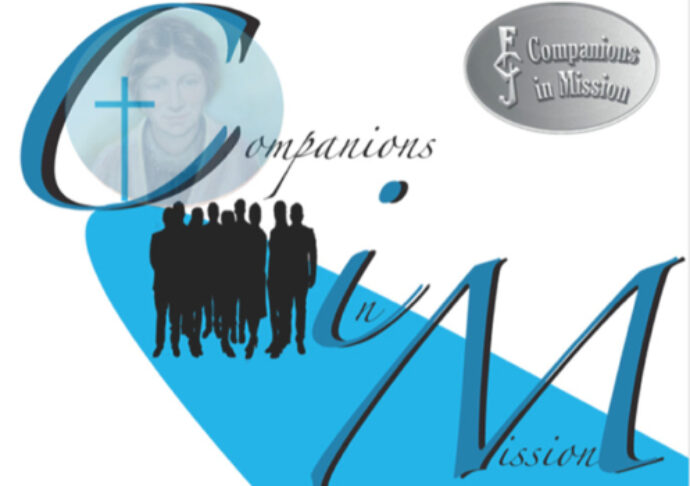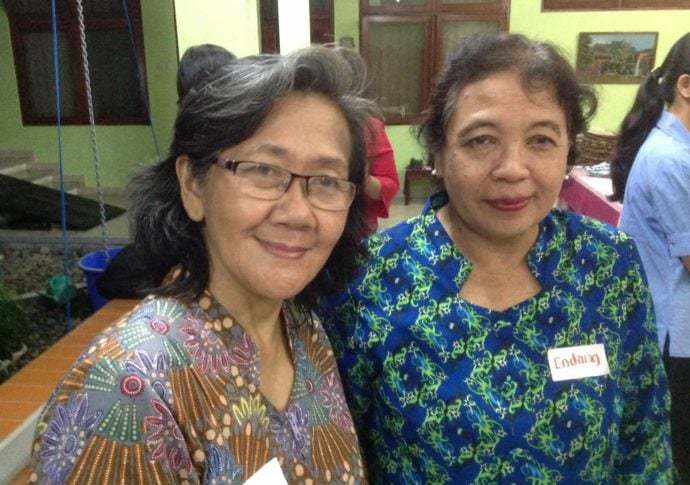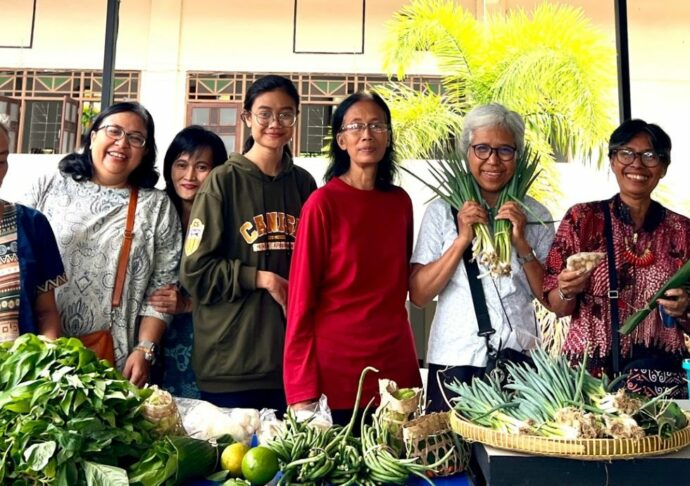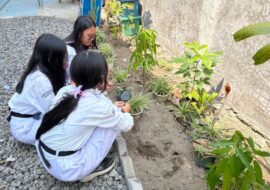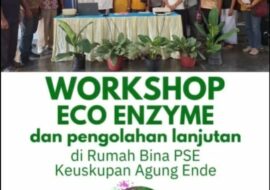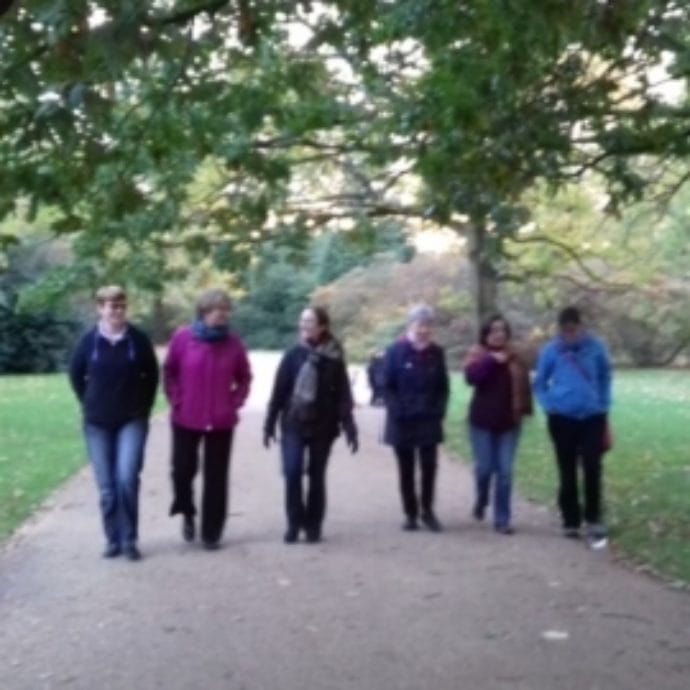FCJ Sisters around the world have been finding ways to live out the goals of the Laudato Si’ Platform. In the last 12 months we planned a variety of actions towards Goal 3: Ecological Economics. Sr Inez fcJ and FCJ Postulant Felicia from Yogyakarta report on their community efforts.
At our local parish in Yogyakarta, we have translated the bold vision of the late Pope Francis’ Laudato Si into concrete economic action through the launch of Gerakan Pasar Tani (The Farmer’s Market Movement). Now in its fifth bloom, this farmer’s market is no mere calendar event. It’s an ethical economy in action, where faith, justice, and sustainability intersect; marking a steady and hopeful beginning. Inspired by the encyclical’s call for integral ecology, we began this initiative to connect organic farmers from Bukit Menoreh, a fertile hill located 25-30 km northwest of Yogyakarta, with urban consumers in the city centre. The goal is simple, to embody food sovereignty and environmental stewardship in practice.
This movement is inspired by the theme of the Catholic Church Jubilee Year Pilgrims of Hope. Cardinal Mgr. Suharyo from the Jakarta Archdiocese emphasizes that we can bring hope by transforming our concern into action. Without action, there can be no hope. His reflection encourages us to initiate this movement. Why focus on food?
For decades, consumers have lacked awareness of economic, social, environmental, and spiritual matters. They often glorify cheap food as a blessing. We limit our understanding of the Eucharist to ‘food for the soul’, ignoring the Eucharistic aspect of ‘food for the body’. The psalmist proclaims, Taste and see that the Lord is good (Psalm 34:8), suggesting that we can experience God through the sense of taste, particularly through food. Meanwhile, farmers have been compelled to produce food unsustainably due to economic and market pressures. The late Rev. Fr. Utomo from the Semarang Archdiocese noted that this mindset has turned farming from a blessing into a curse. Modern agriculture has contributed to serious issues, including the loss of biodiversity and cultural heritage, climate change, pest resistance, water and air pollution, health problems, and poverty.
Here are some examples. Modern agriculture causes tragedies for many farmers worldwide, resulting in the loss of farms and livelihoods. In India, between 1997 and 2009, 250,000 farmers committed suicide due to debt [1]. In the health domain, a single food item produced by modern agriculture contains at least five persistent chemical toxins, which can cause health problems, including gastric, reproductive, and kidney issues, cancer, inborn disabilities, and neurodevelopmental disorders[2].

We desire a change. Sr. Bonnie Moser, the FCJ General Superior, states that instead of lamenting the darkness, we should embody the change and hope we seek. This movement signifies our longing for transformation.
With strong support from the parish priest and parishioners, including Sr. Inez fcJ in the project, the market comes to life weekly after the Sunday morning Eucharist. Rural farmers offer fresh vegetables, fruits, and roots directly to city dwellers. Consumers receive healthy farm-to-table products; farmers gain fair prices and market certainty; the environment benefits from sustainable agricultural practices. This movement is best described by Herni, a farmer, who says “Through this fair market, the Church is present for us like a light breaking through darkness.” Just in short period of couple of months, farmers have found renewed energy to plant, knowing their work is valued. This hope brought by the Church is not just symbolic—it is a structural change powered by community faith.
Through this fair market, the Church is present for us like a light breaking through darkness.
Herni, farmer
As for this project, there is still much to refine. But in every month’s learning, in every exchanged smile, and in every bundles of vegetables sold, we witness ethical economics in action. Each market day deepens our understanding: that every economic choice carries moral weight.
This movement is not a theory or rhetoric. This is a story of transformation, breathing a spirit of hope. As the late Pope Francis reminded us, “Real hope is not a passive feeling – it is built through compassionate, courageous action. It is a gift received from God.” (source: 39th World Youth Day 2024). That is exactly what we are developing: a local economy rooted in justice, nurtured by care, and shared with joy. Therefore, it is spiritually fulfilling.
Real hope is not a passive feeling – it is built through compassionate, courageous action. It is a gift received from God.
Pope Francis
[1] A Whitney Sanford, Growing Stories from India. Culture of the Land (2012).
[2] Irfan A. Rather et al., The Sources of Chemical Contaminants in Food and Their Health Implications (2017).
